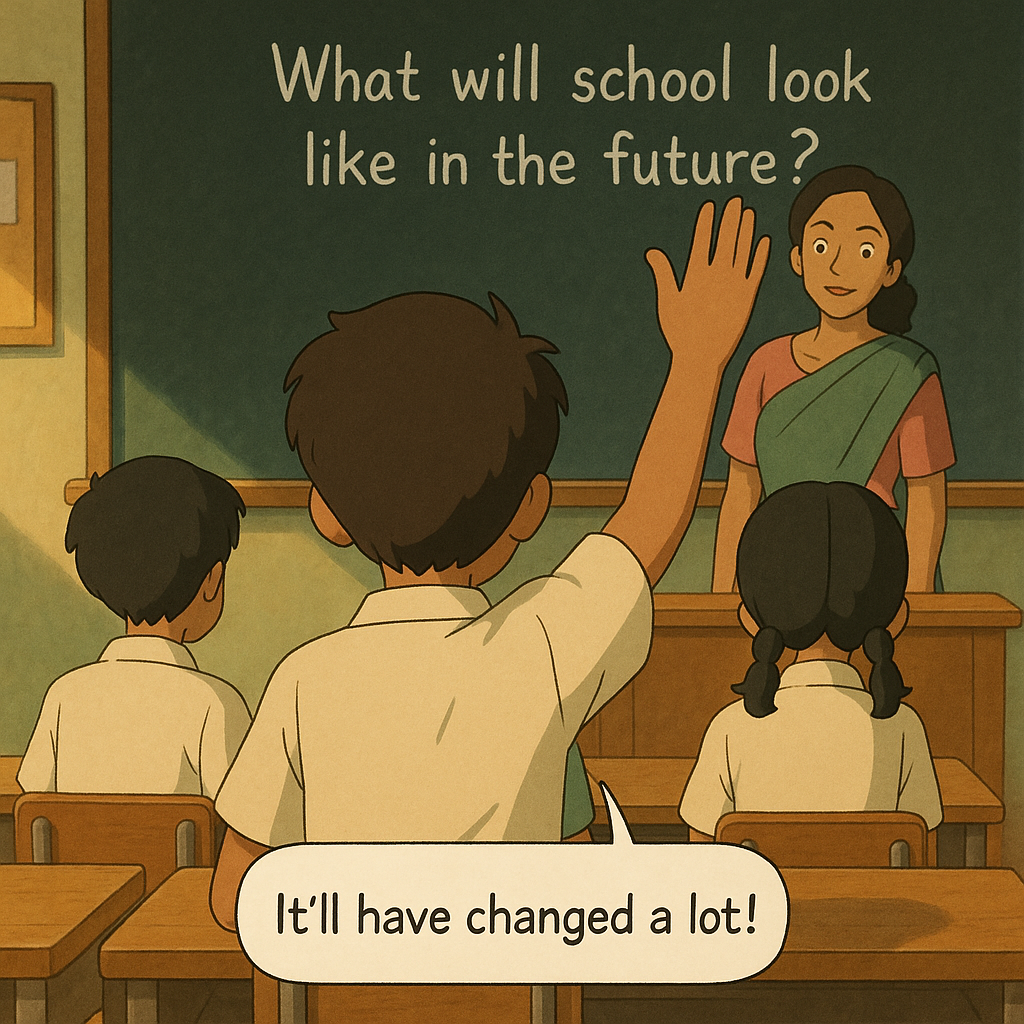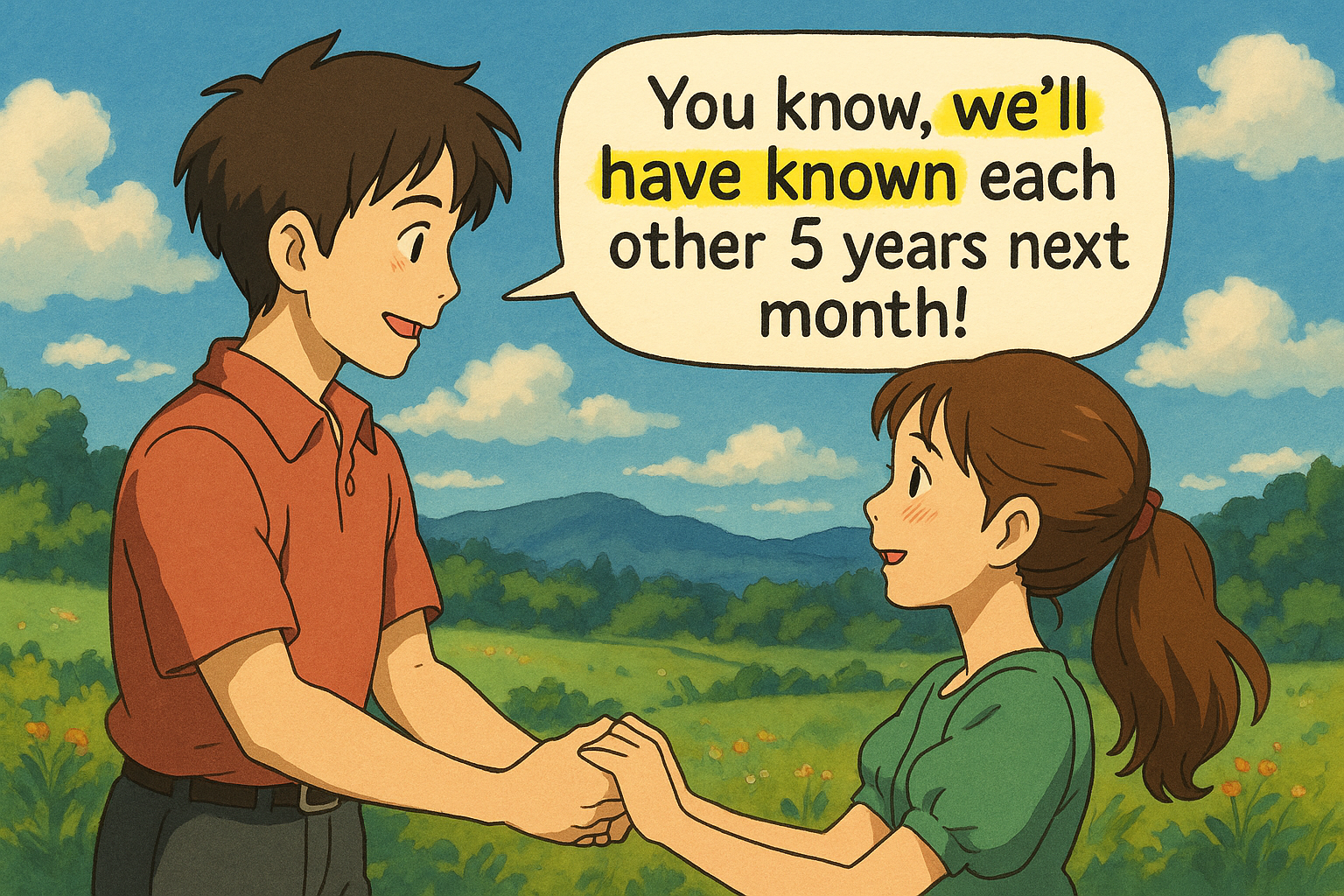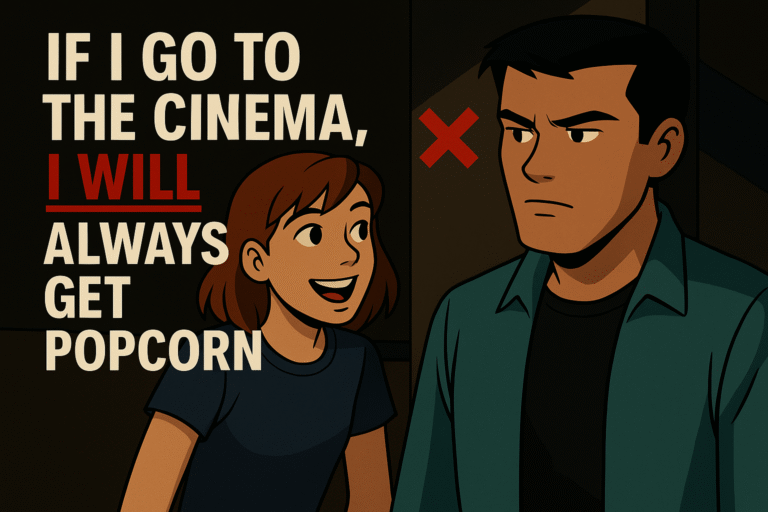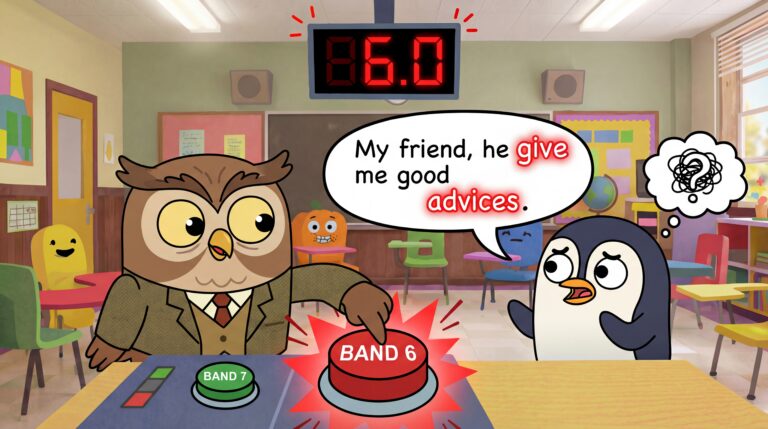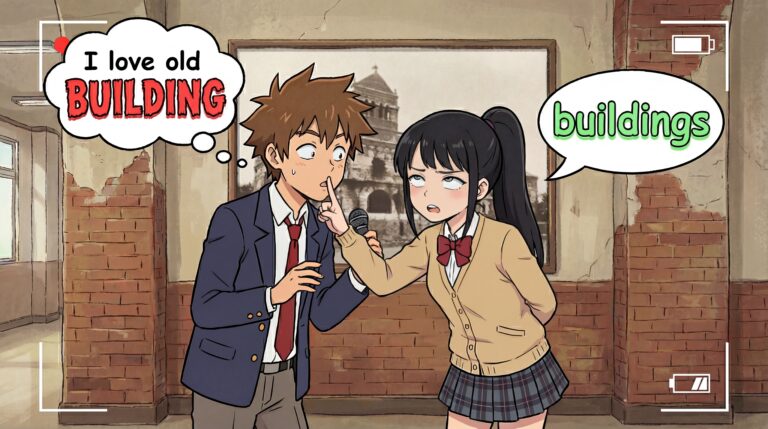🔹 What Is the Future Perfect Tense?
The future perfect tense is used to talk about an action that will be completed before a specific time in the future.
Structure:
👉 will + have + past participle
👉 will + have + been + -ing (for continuous actions)
Example:
“I will have finished my degree by next year.”
“I’ll have been living here for a year next month.”
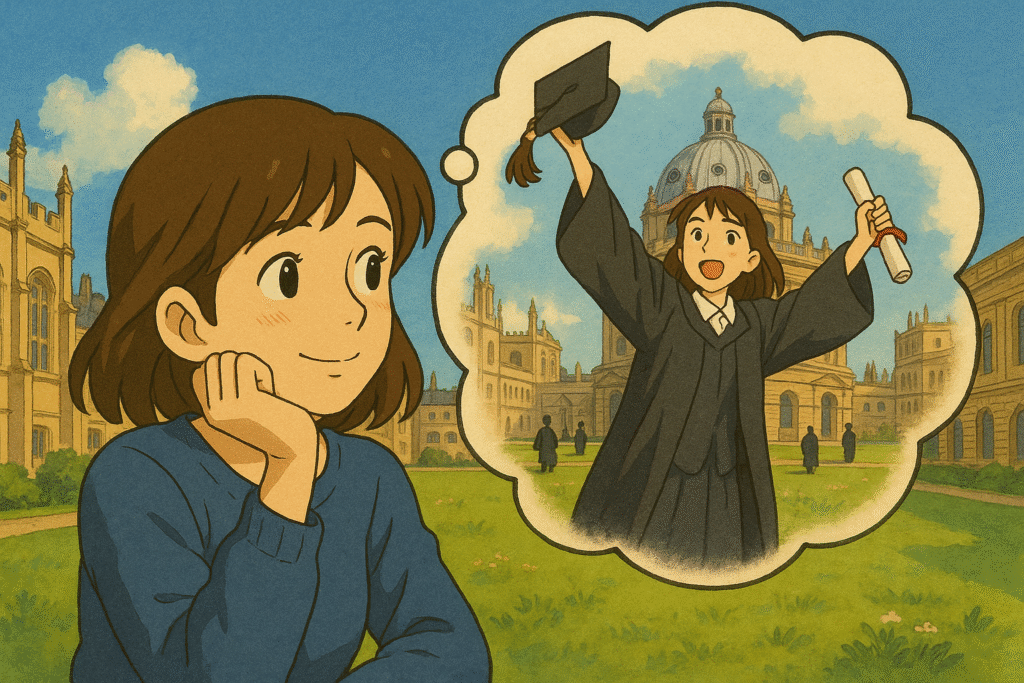
🔹 Why It’s Useful for IELTS
Using the future perfect (and future perfect continuous) helps you:
👉 Show advanced control of grammar (Band 7+)
👉 Talk naturally about how long you’ve done something up to a point in the future
And it’s especially effective in Part 1 (personal questions) and Part 3 (future predictions)
📝 Task:
Compare the answers to the question “What’s your job?” and decide which one is the most impressive:
Option 1: I’m a software engineer, and I’m currently working in an international tech company.
Option 2: I’m a software engineer, and I’ve been working in an international tech company for nearly two years.
Option 3: I’m a software engineer, and I’ll have been working in an international tech company for nearly two years next month.
Answer
I’m a software engineer, and I’ll have been working in an international tech company for nearly two years next month. (FUTURE PERFECT CONTINUOUS)
Tip: You can even combine them. E.g. I’ve been working here since the start of the year, so it’ll have been 2 years next month. (PRESENT PERFECT CONTINUOUS & FUTURE PERFECT)
Useful Examples & Timeline 🕰️
The following examples are super for IELTS speaking as the examiner often asks about where you live, your job, your hobbies/ interests and people you know (friends, family, colleagues). The key is to NOT OVERUSE the FUTURE PERFECT. Only use it ONCE per IELTS speaking test.
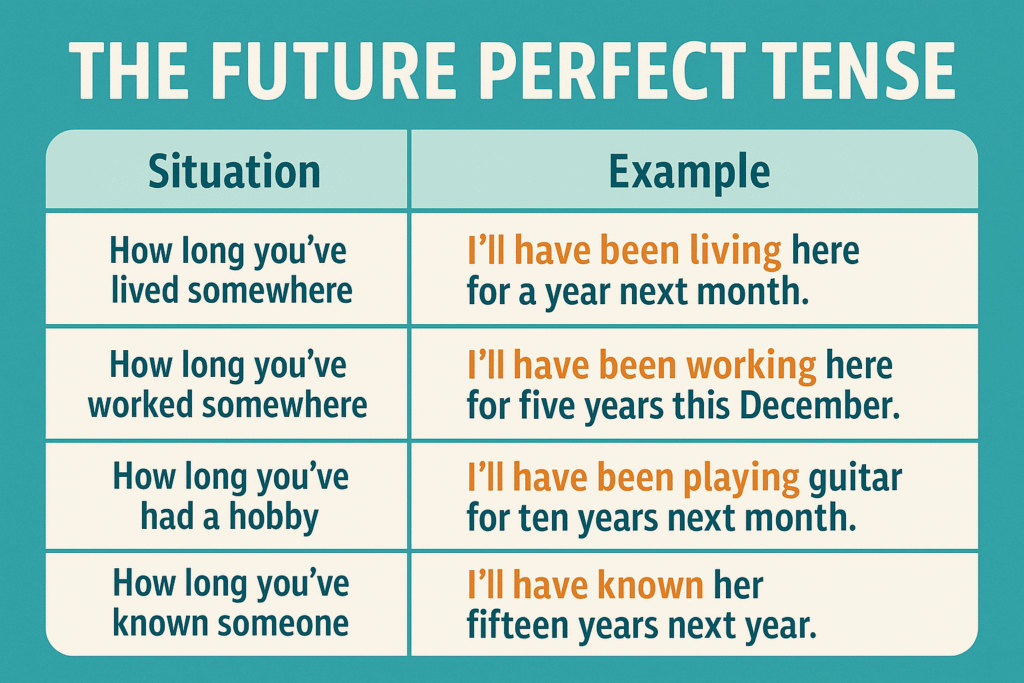
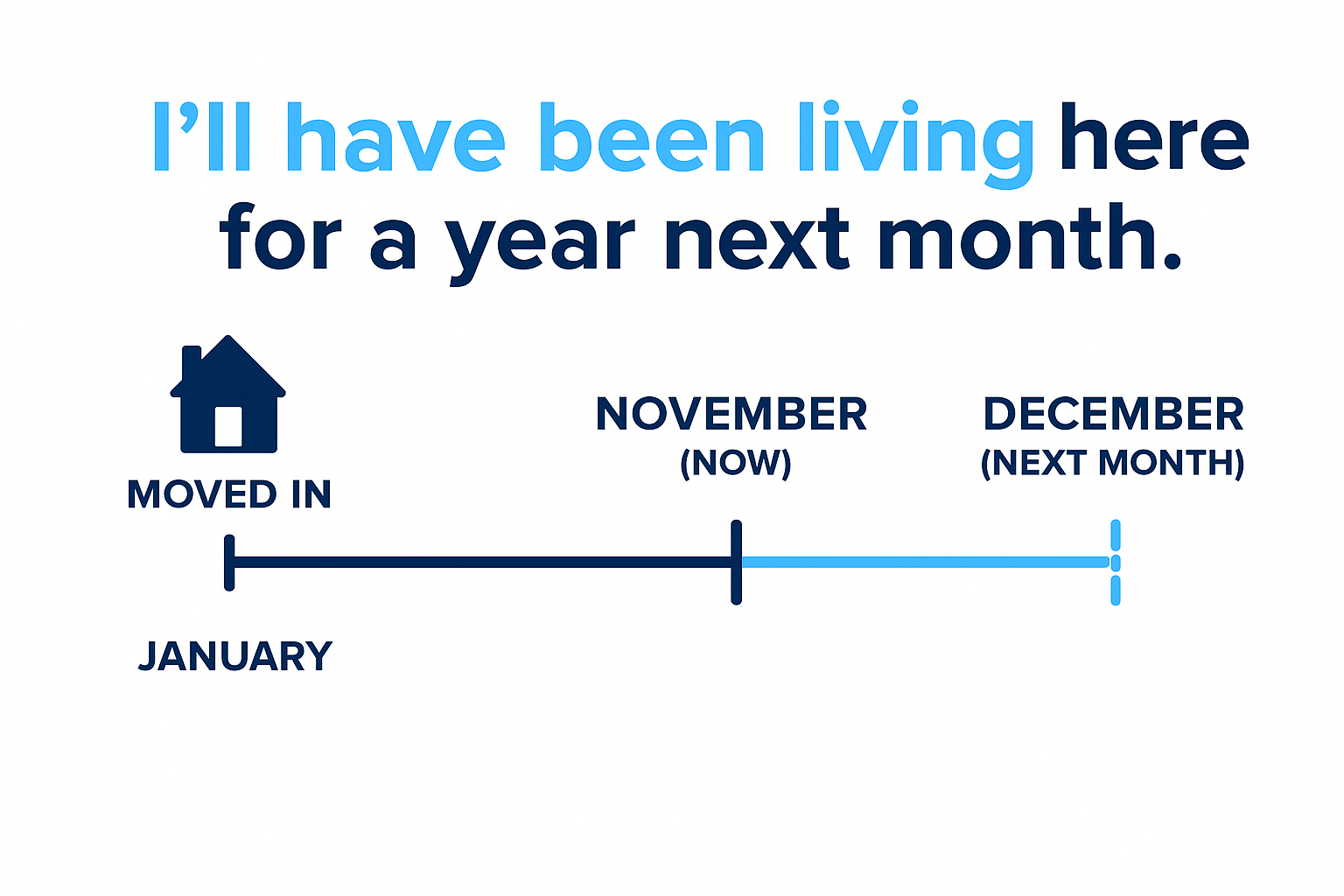
� Practice Exercise 1: Fill-in-the-Blanks
Task: Complete each sentence using the Future Perfect (will have + past participle / will have been + -ing) form of the verb in brackets.
- Next June, I will have been living (live) in this city for two years.
- By this time next year __________________ (graduate) university.
- Next month, she __________________ (work) at that company for six years.
- In five years’ time, we __________________ (know) each other for a decade.
- Next year, he __________________ (play) guitar for fifteen years.
- By the end of this year, I __________________ (save) enough money to travel abroad.
✅ Extra challenge: After completing each sentence, say it aloud naturally as if in an IELTS response.
Answers
- Next June, I will have been living in this city for two years.
- By this time next year I will have graduated university.
- Next month, she will have been working at that company for six years.
- In five years’ time, we will have known each other for a decade.
- Next year, he will have been playing guitar for fifteen years.
- By the end of this year, I will have saved enough money to travel abroad.
✅ Tip: Use “been + -ing” for ongoing actions (living, working, studying) and the simple form (known, saved) for completed states.

⏳ Practice Exercise 2: Timeline Challenge
Task: Draw a personal timeline on a piece of paper and mark:
1. When you started living somewhere
2. When you started your job/studies
3. When you started a hobby
4. When you met someone important
Then, write or say four sentences using the future perfect tense.
🧠 Examples:
- I moved here in September 2021 → So, this October, I’ll have been living here for five years.
- I started playing guitar in 2010 → Next year, I’ll have been playing for fifteen years.
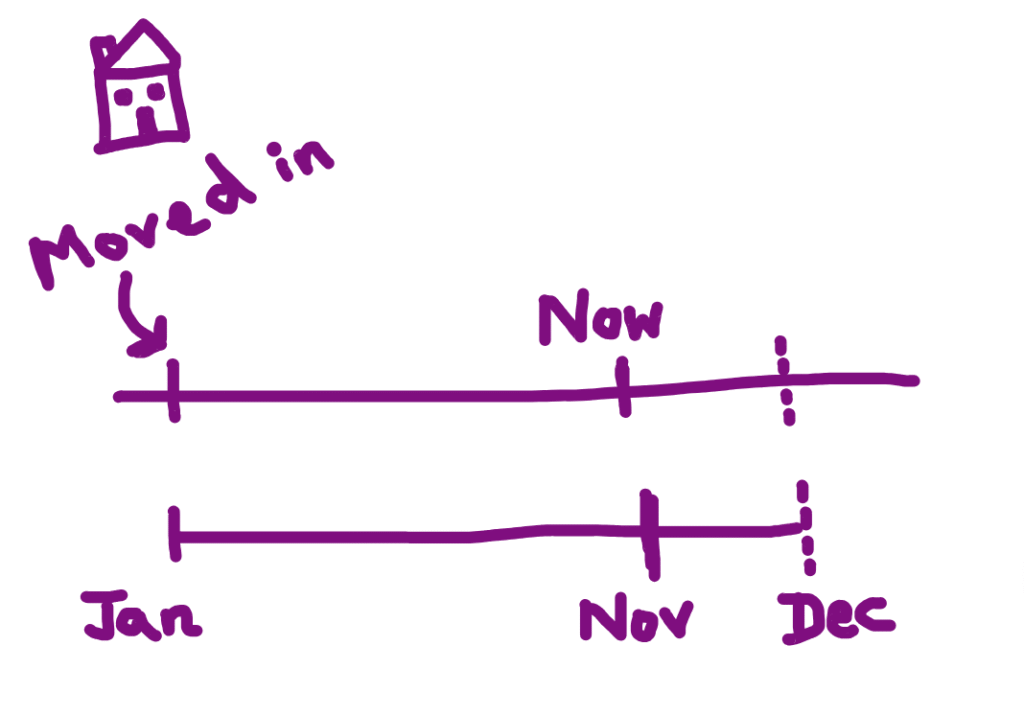
“I moved into my flat in January, so I’ll have been living here for a full year next month- It’s absolutely flown by!”
🔮 Part 3 Predictions/ Speculation
The most natural way to use this is to i) think about a specific moment in the future and then ii) use the future perfect to reflect on what you imagine will have happened, want to have happened or hope to have happened OR NOT have happened.
Task: Listen and sing along to the Future Perfect Song below!
🎵 Practice Exercise 3: Listen & Understand!
Task: Listen to the audios and write down what you think the speaker said!
1.
Answer
By the time I’m 35, I hope I’ll have settled down; but of course I want to have travelled to at least 5 countries before then!
2.
Answer
I’m doing a gap year in Australia; I reckon I’ll have figured out what I want to do in life by next year, fingers crossed!
3.
Answer
I think AI will have taken all the jobs by the time I graduate from uni!- Even the influencers will have been replaced by virtual influencers!
4.
Answer
I’d like to have experienced living abroad in London and Paris before moving back to Chongqing.
📝 Practice Exercise 4: IELTS Questions
Task: Try to respond using the future perfect simple or future perfect continuous!
Part 1 Questions
- What do you do for a living?/ What’s you job?/ Do you work or study?
- What do you like to do for fun?/ What are your hobbies?
- Do you play any instruments?
- Where do you live?/ Do you live in a house or flat?
- Do you have a best friend?
Potential Answers
1. What do you do for a living? / Do you work or study?
I’m currently studying Law, and I’m in my final year, so by June, I’ll have finished my degree, which I’m really looking forward to!
2. What do you like to do for fun? / What are your hobbies?
Nothing too crazy to be honest. I just like meeting up with mates for coffee or going out for dinner. I would love to get into some kind of sport though, so let’s see, maybe this time next year I’ll have joined a club or something!
3. Do you play any instruments?
Piano! I’ll actually have been playing piano for 10 years this year! My auntie got me into it when I was 10 and she always sends me songs that she wants me to learn and play for her!
4. Where do you live? / Do you live in a house or flat?
I live in an apartment with friends. This weekend I’ll have been living here for one full month!
5. Do you have a best friend?
Yeah, I do. We’ve known each other since school, so we’ll have been friends for 20 years.
Part 3 Questions
- How do you think people’s lives will change in the future?
- How might communication change in the future?
- What changes do you think we’ll see in education in the future?
- Do you think traditional classrooms will still exist in the future?
- How do you think people’s working lives will be different in the future?
- Do you think remote work will continue to be popular?
- Do you think we’ll be able to solve environmental problems in the future?
- How do you think healthcare will improve in the future?
- Do you think family life will change in the future?
Potential Answers
1. How do you think people’s lives will change in the future?
It’ll have changed a lot! I reckon we’ll all work much less because AI and robots will do most of it. So that’ll be nice.. we’ll have more free-time to spend with family and friends.
2. How might communication change in the future?
In a few decades, we’ll have developed more immersive ways to connect — probably through virtual reality or brain interfaces.
3.What changes do you think we’ll see in education in the future?
I don’t think it’ll be long until most universities will have moved online, and students will be learning with AI tutors.
4.Do you think traditional classrooms will still exist in the future?
Not really — I think they’ll have been replaced by interactive virtual spaces.
5.How do you think people’s working lives will be different in the future?
I reckon many people will have switched careers several times because the job market will keep changing.
6.Do you think remote work will continue to be popular?
Yeah for sure. In a few years, most companies will have built hybrid systems that make remote work the norm.
7.Do you think we’ll be able to solve environmental problems in the future?
I’ve no clue to be honest, but I’d like to think we’ll have figured a few things out!
8.How do you think healthcare will improve in the future?
Well, by the time I’m old, I reckon scientists will have found cures for many diseases we struggle with now.
9.Do you think family life will change in the future?
To be honest, I’m not too sure. I think it won’t have changed too much. I mean, how much can family dynamics really change? Maybe because of globalisation, families will be more diverse.
Pro Tip!
For Speculative questions about the future in part 3, you can answer with “It’ll have changed a lot” and then just explain your ideas.
Whether the examiner asks you about the future of education, medicine, technology, fitness, entertainment etc, you can use this line.
